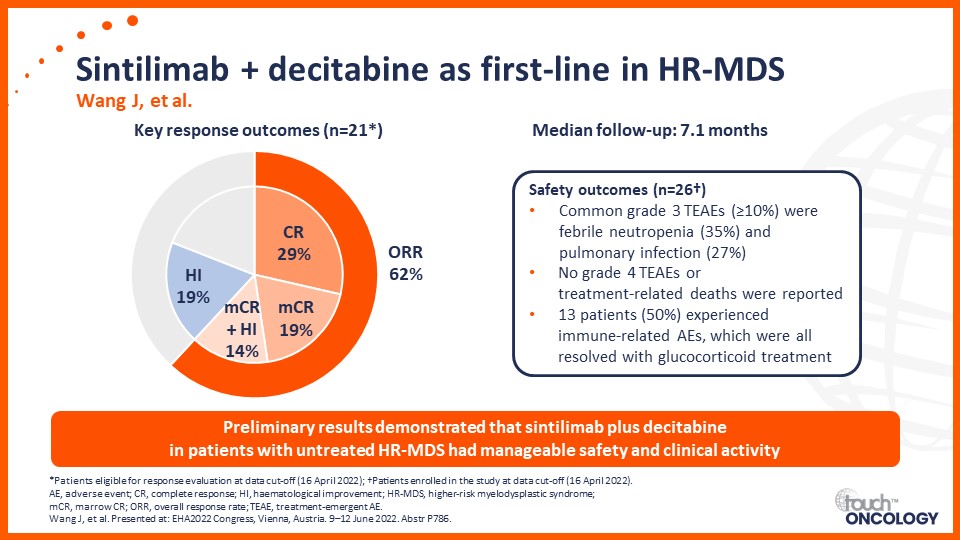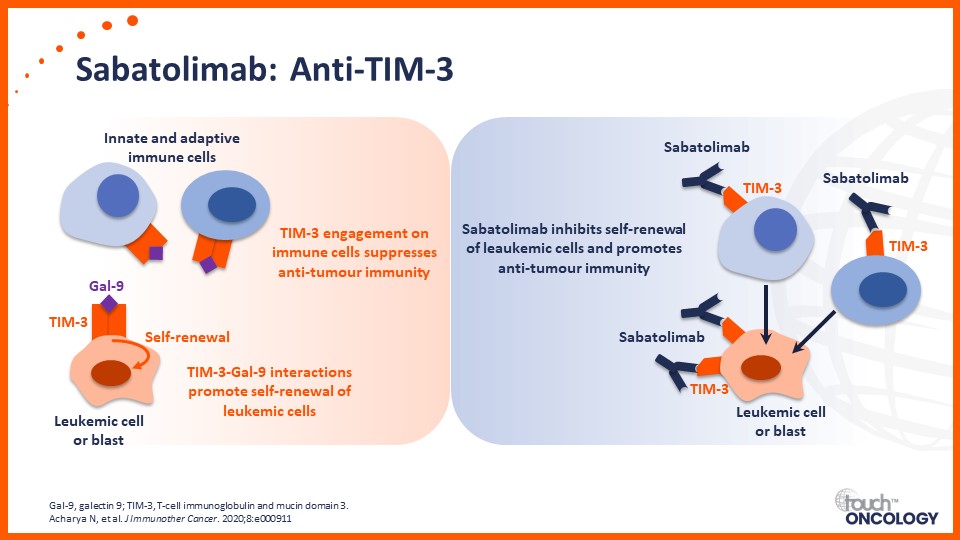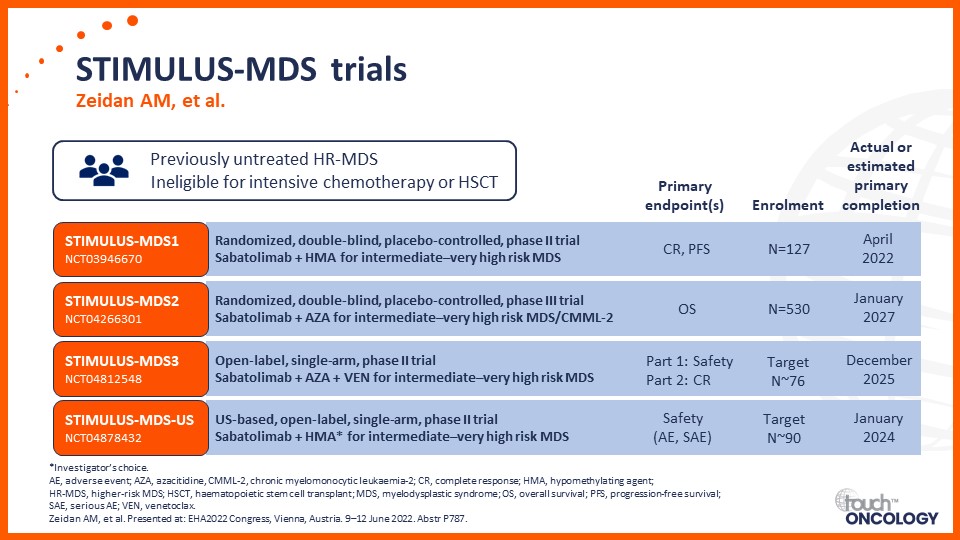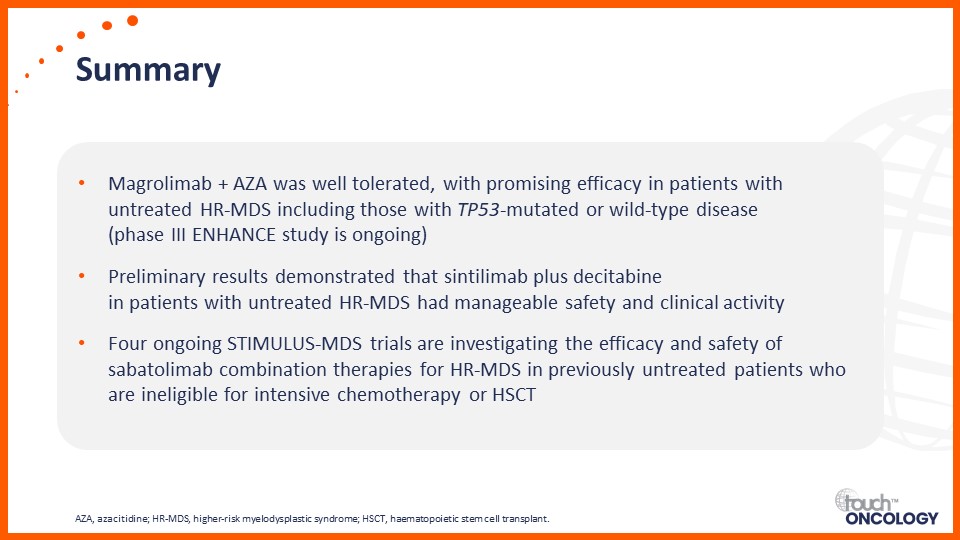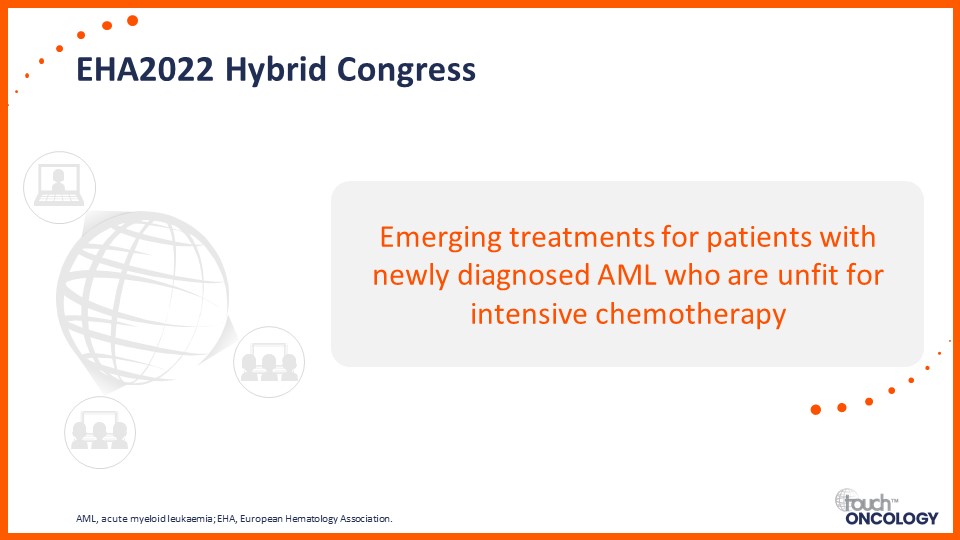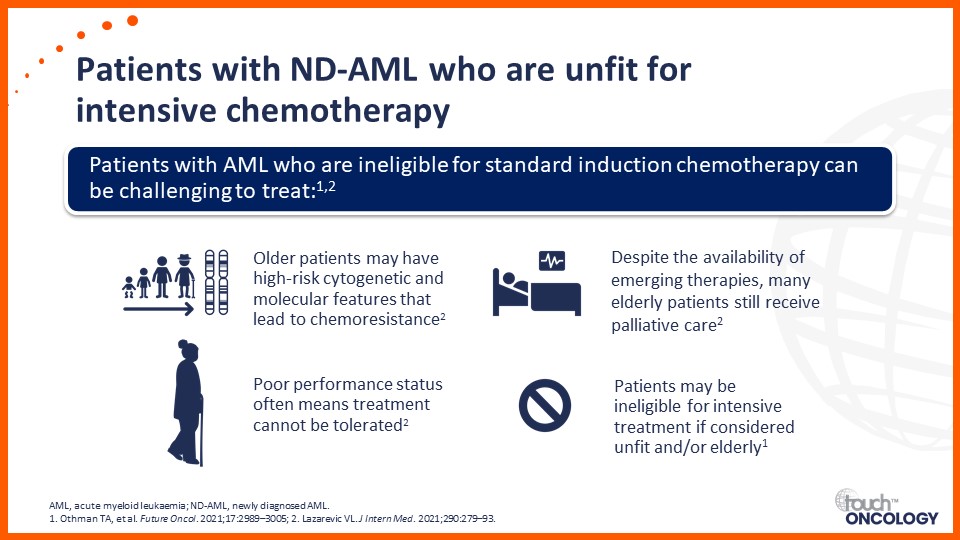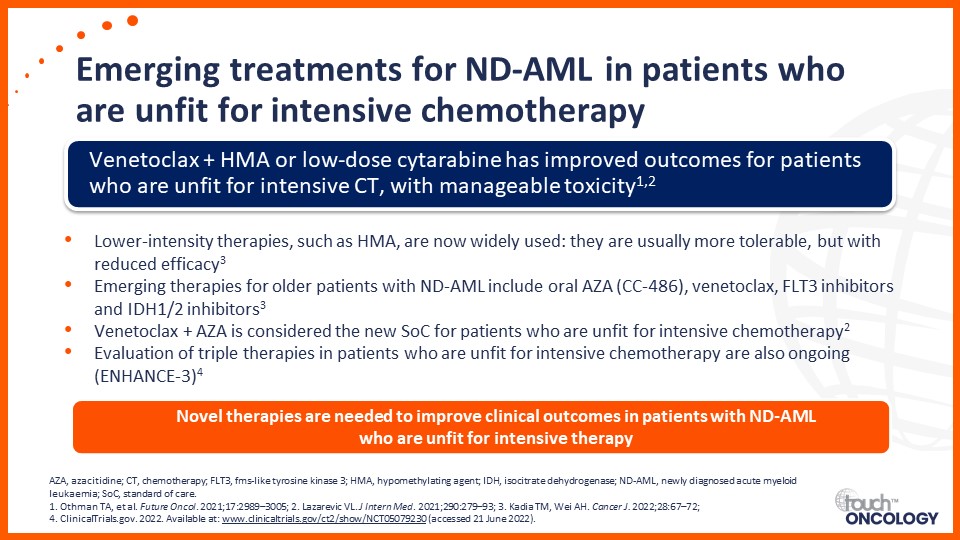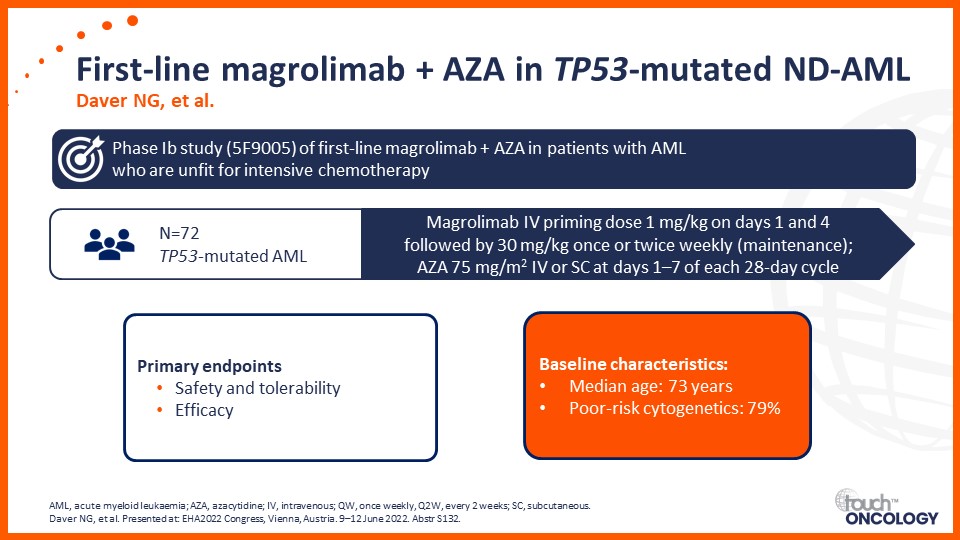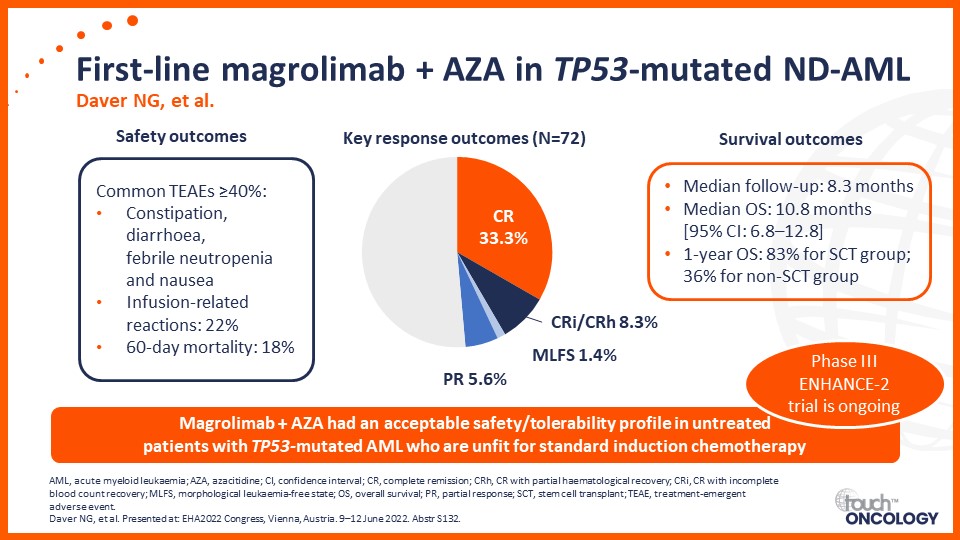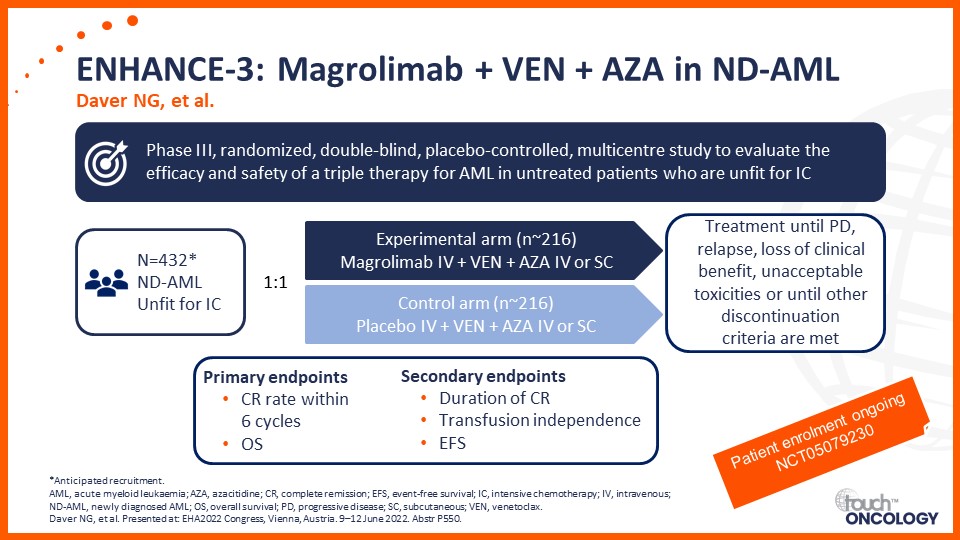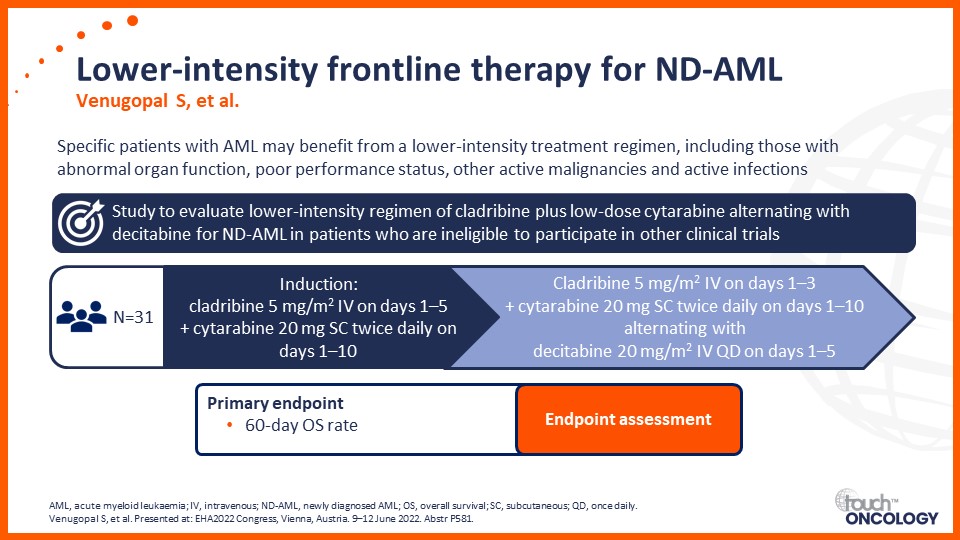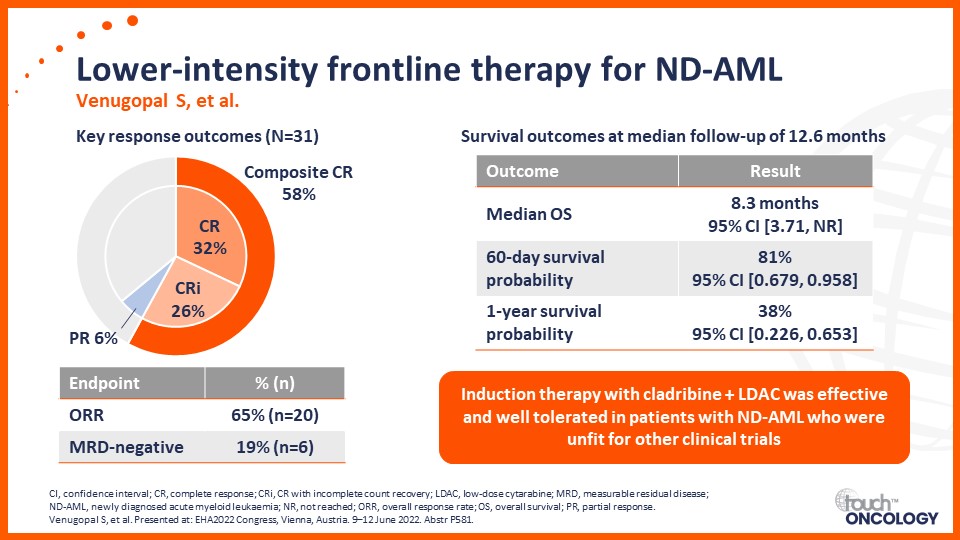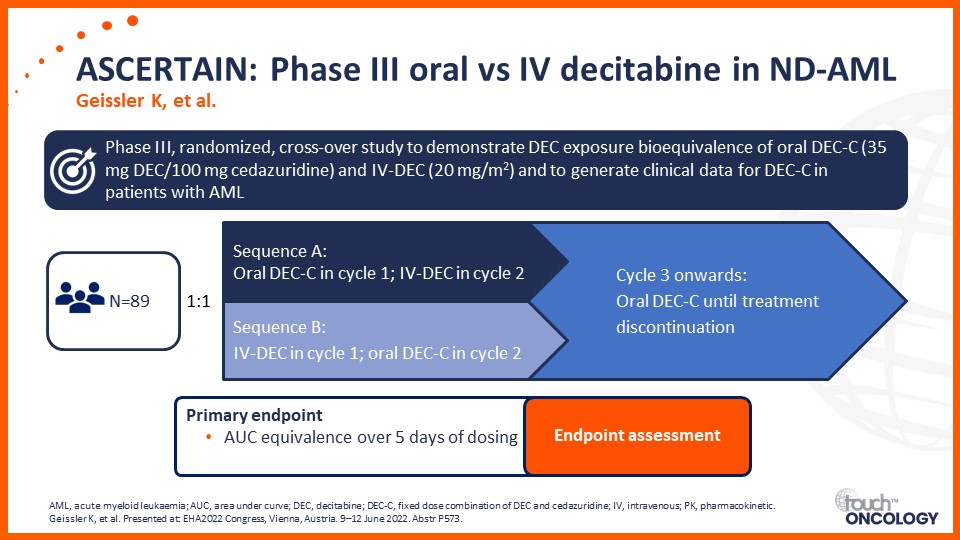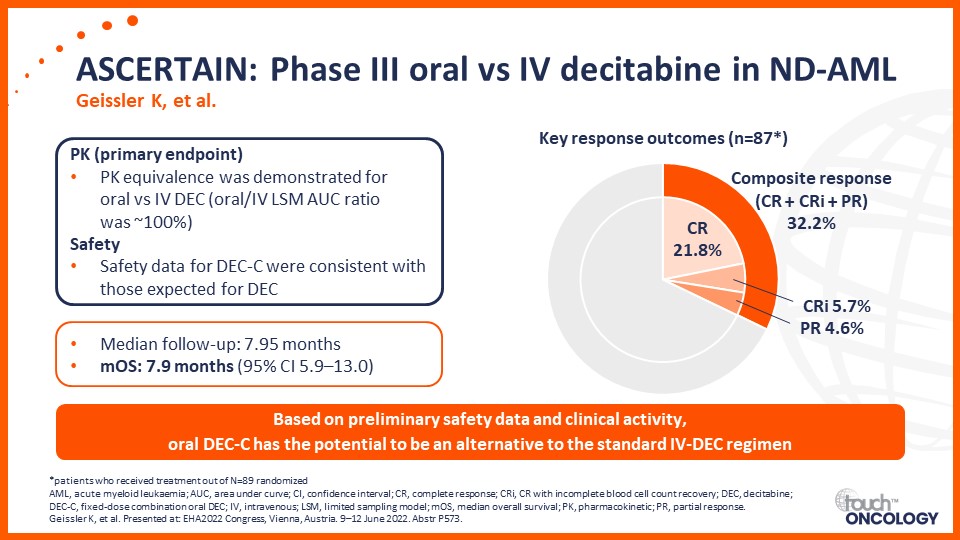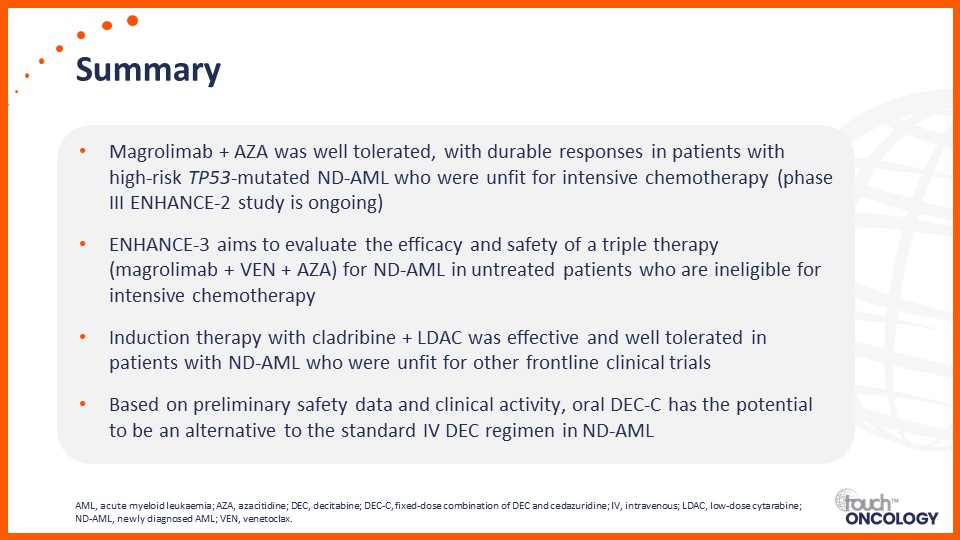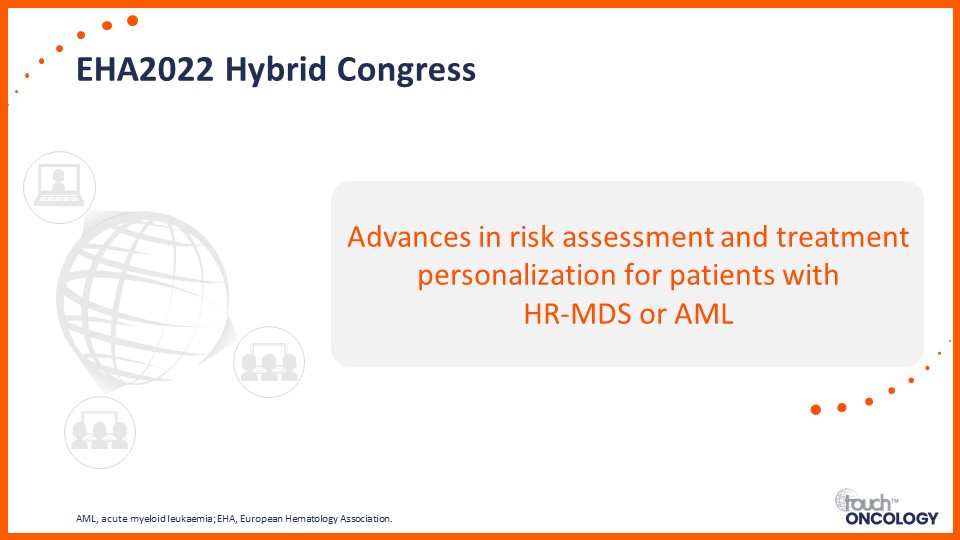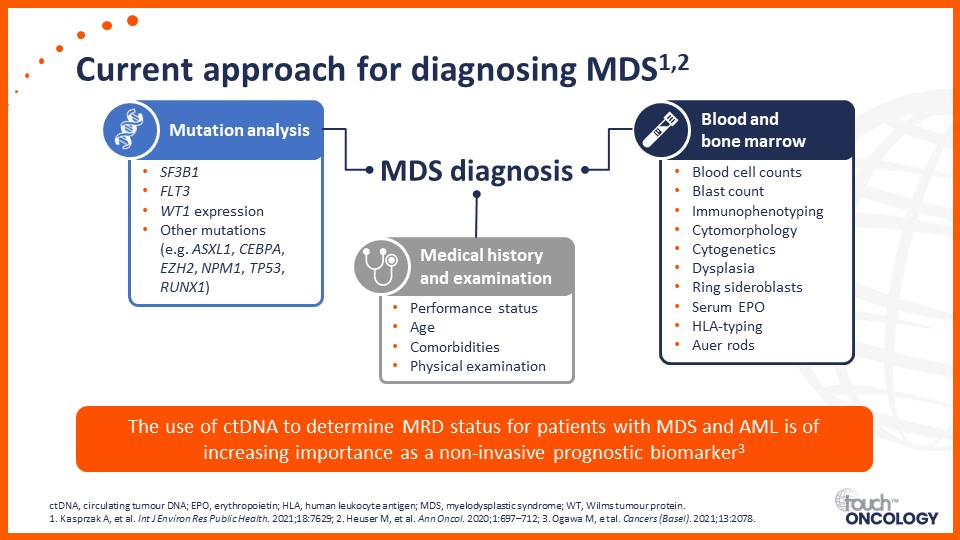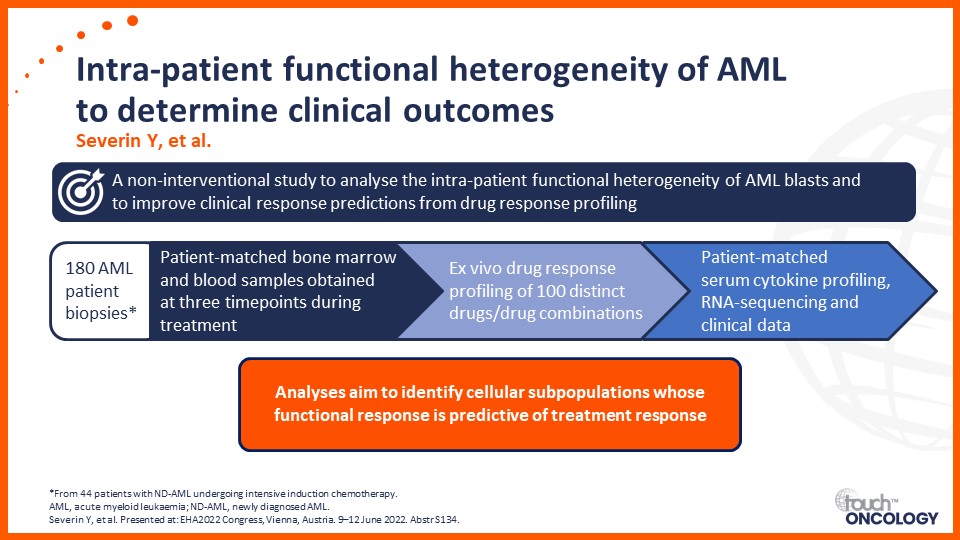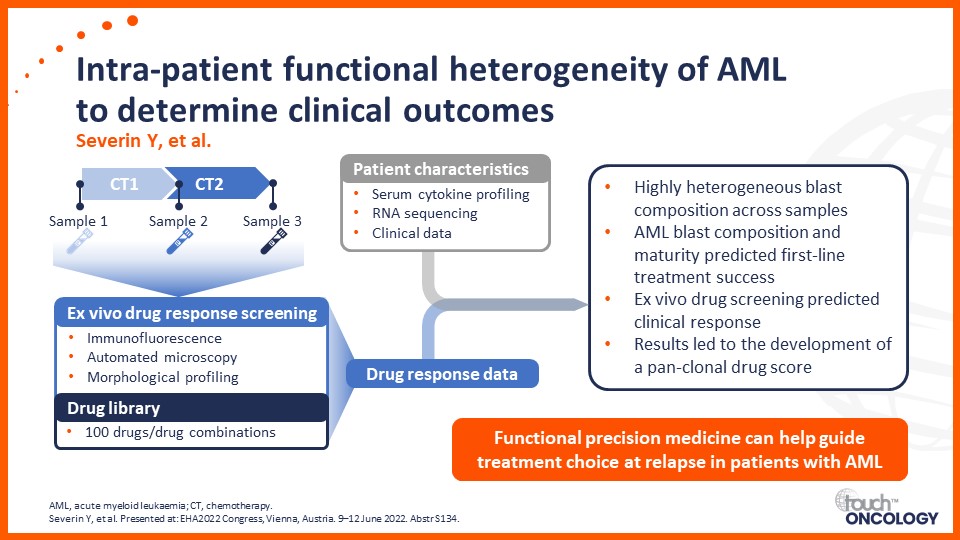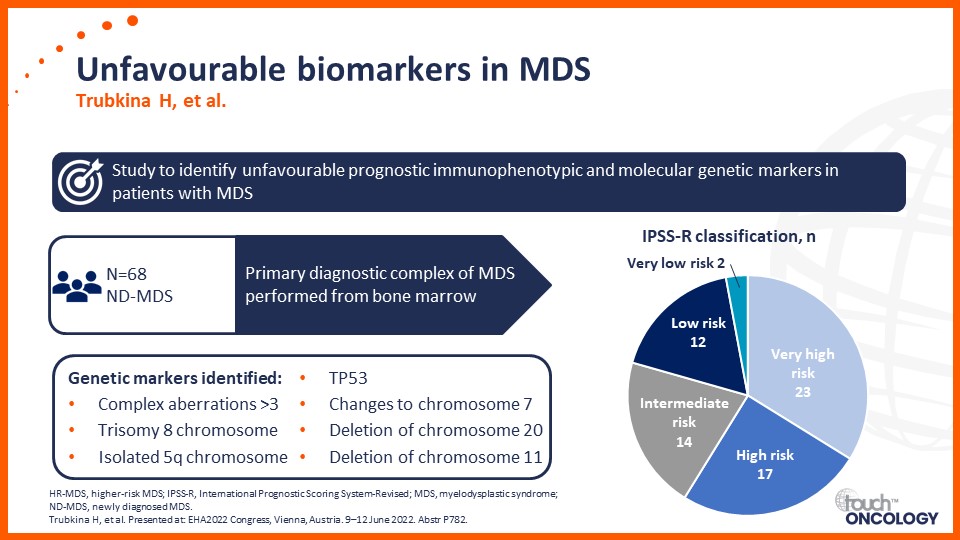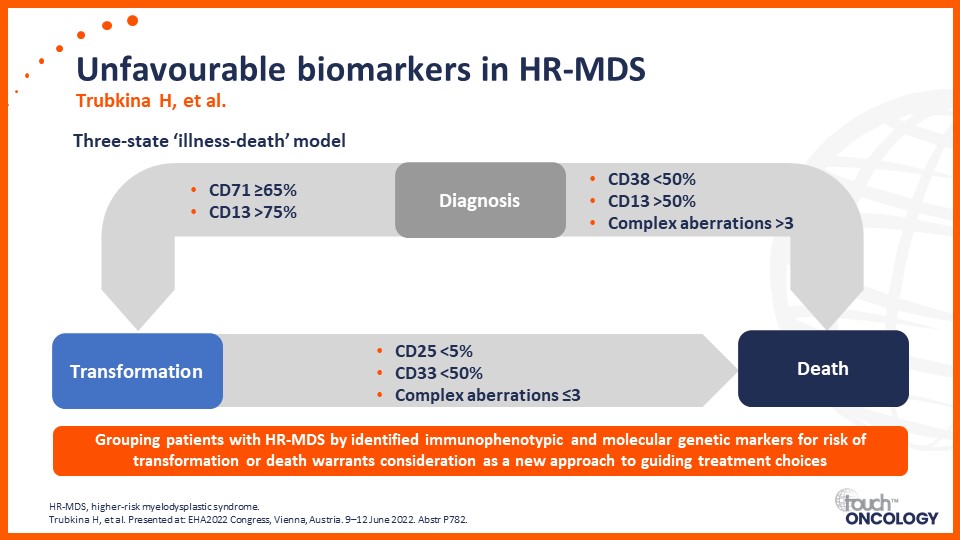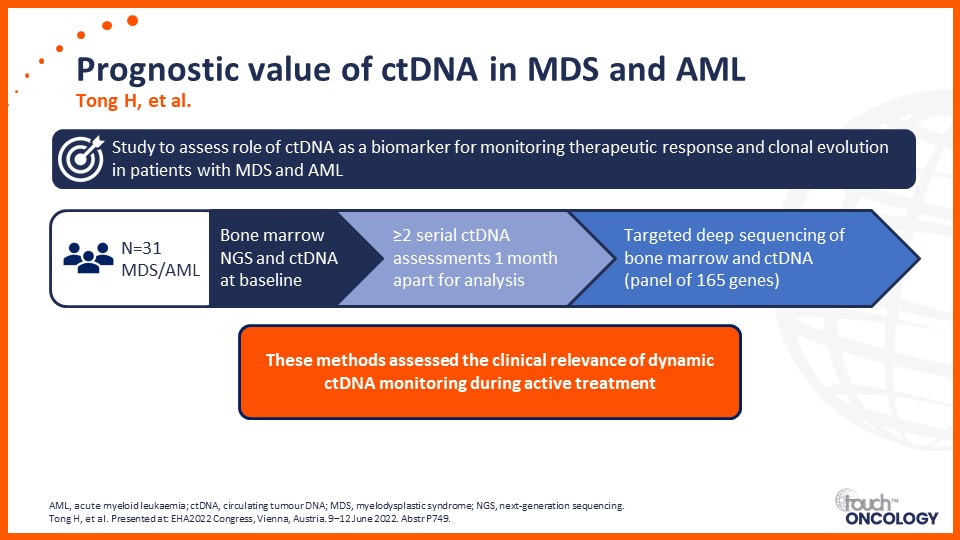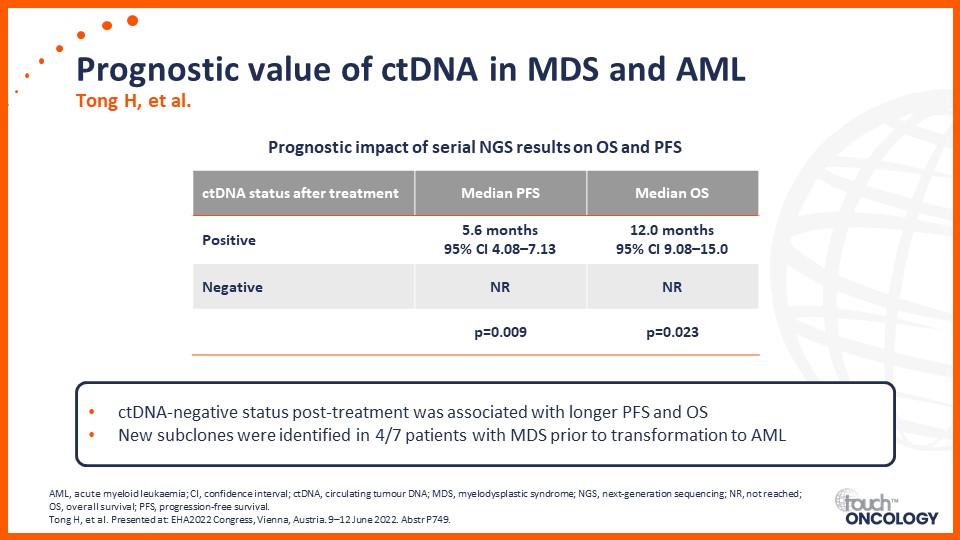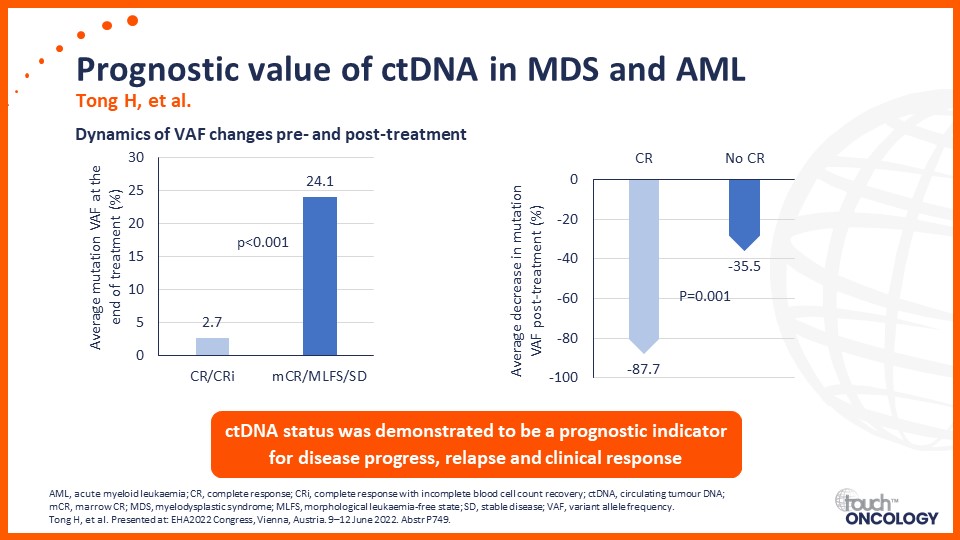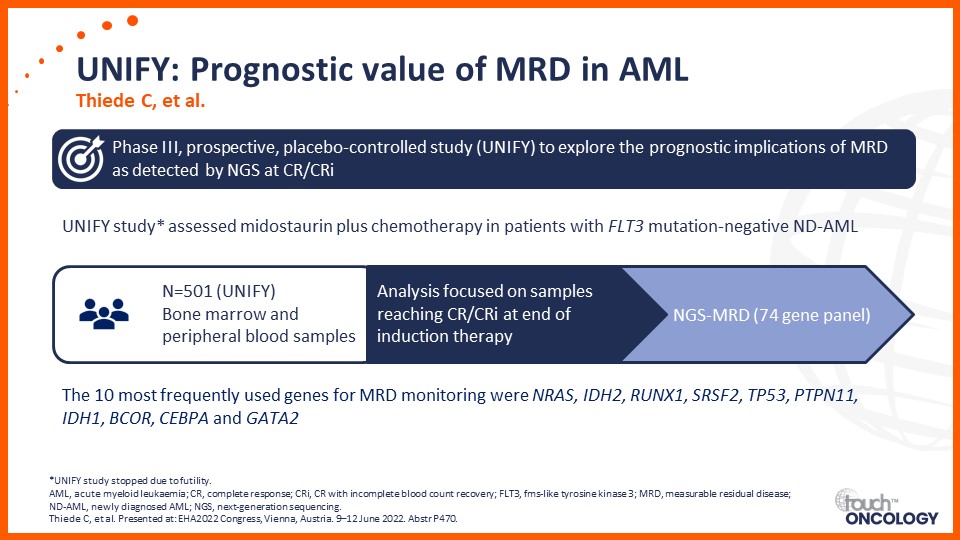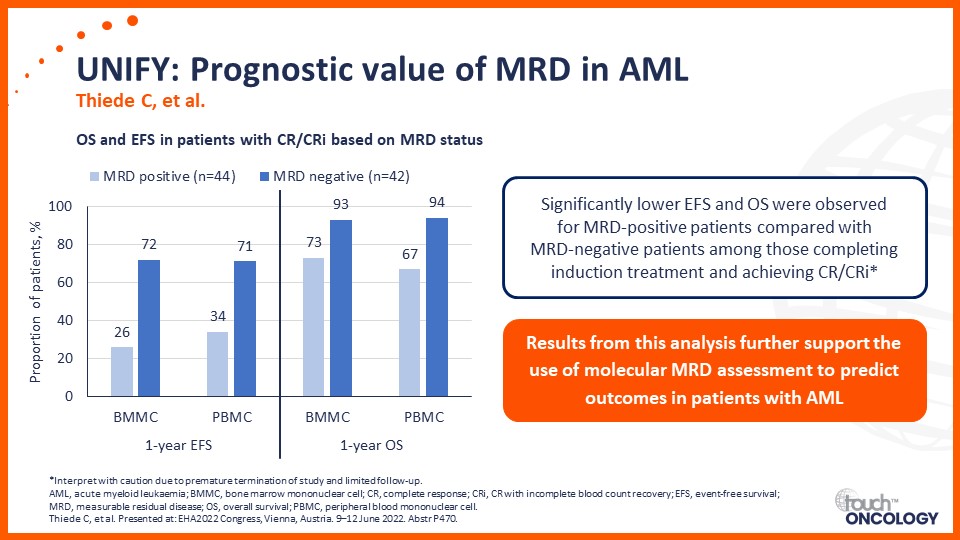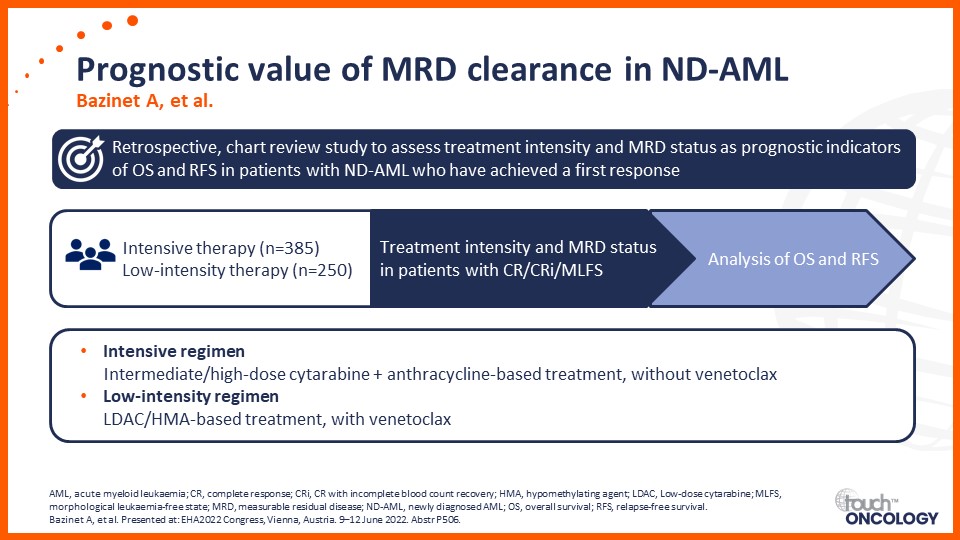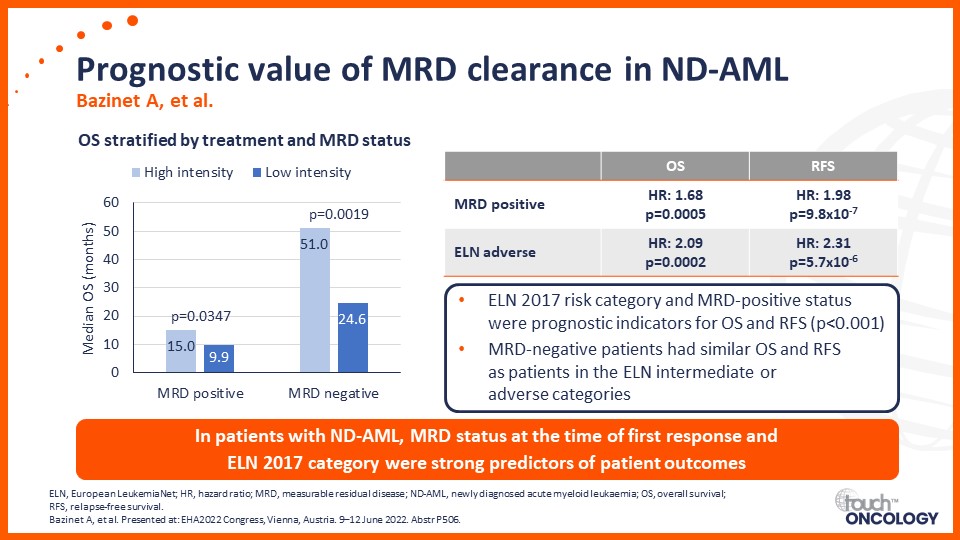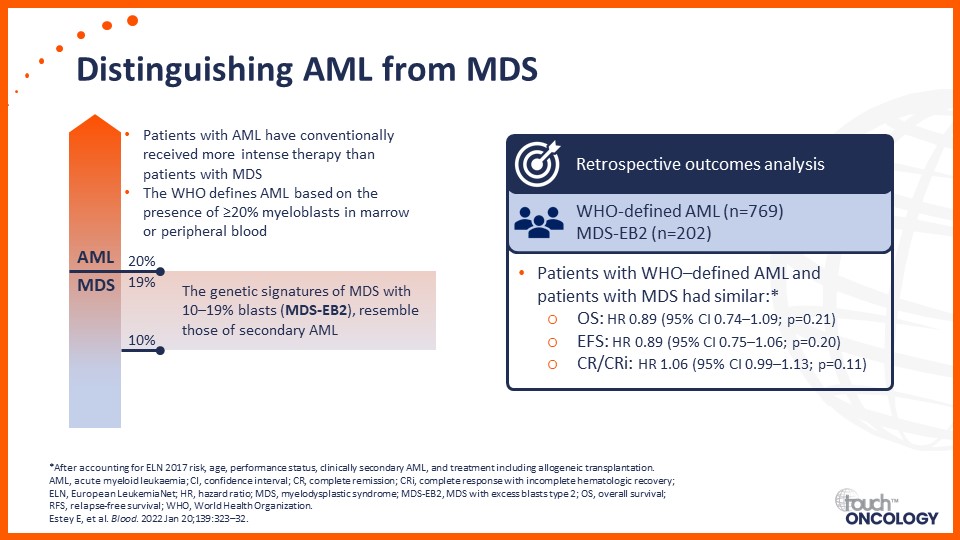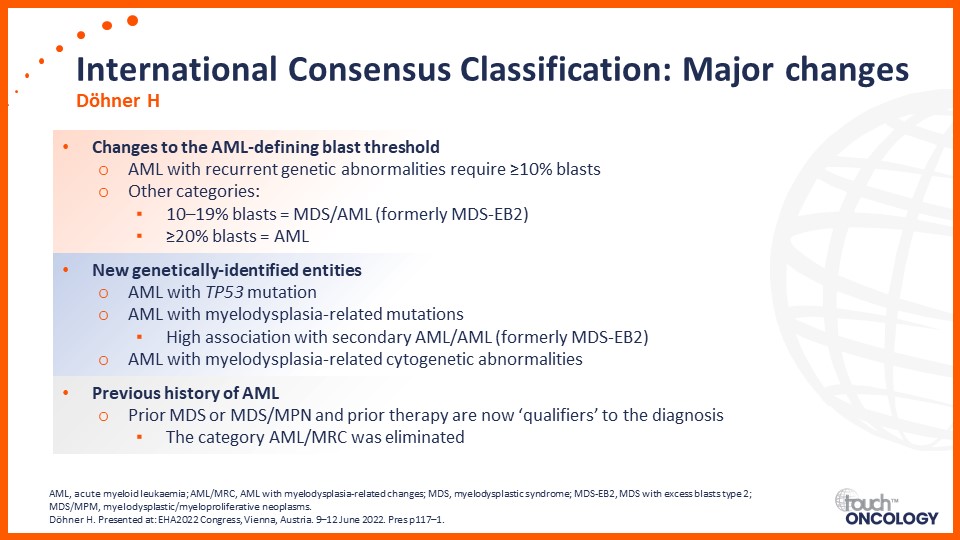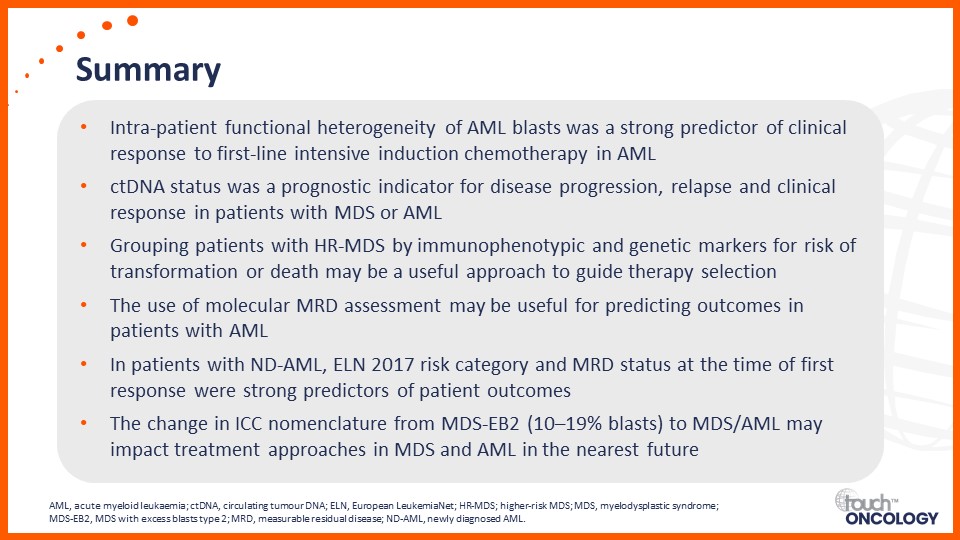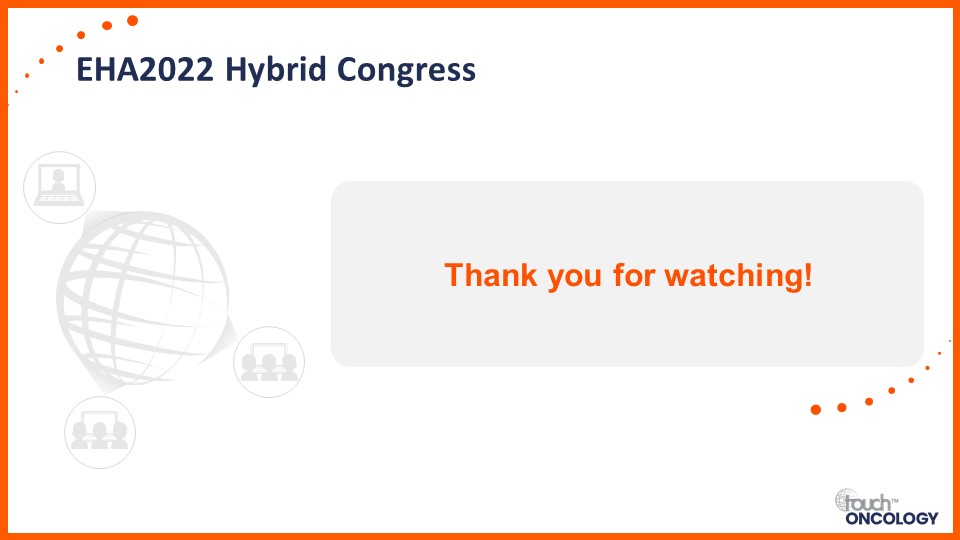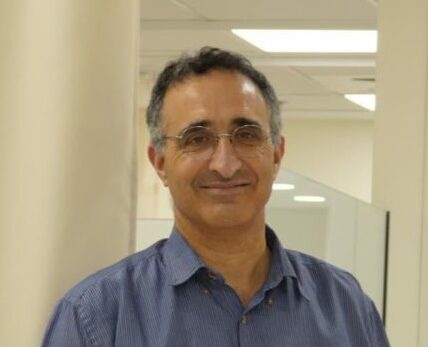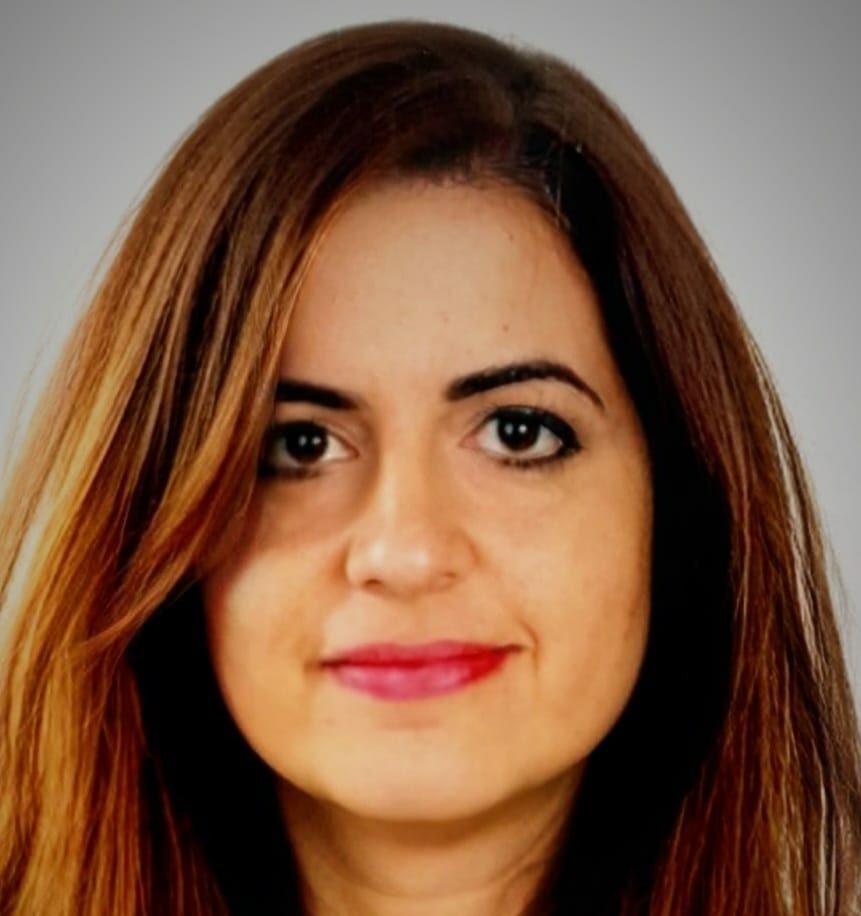touchCONGRESS Higher-risk MDS and newly diagnosed AML: What are the latest developments from EHA 2022?
Watch this two-part activity exploring recent developments in the treatment of higher-risk MDS and newly diagnosed AML. Filmed following the EHA 2022 Hybrid Congress.
Introduction
Emerging therapeutic strategies for patients with HR-MDS
Emerging treatments for patients with newly diagnosed AML who are unfit for intensive chemotherapy
Advances in risk assessment and treatment personalization for patients with HR-MDS or AML
Prof. Michael Heuser considers the latest data from the EHA 2022 Hybrid Congress on new and emerging treatments for the improvement of outcomes in patients with higher-risk MDS and newly diagnosed AML.
Dr Yishai Ofran considers the latest data from the EHA 2022 Hybrid Congress on new and emerging treatments for the improvement of outcomes in patients with higher-risk MDS and newly diagnosed AML.
Dr Esther Oliva considers the latest data from the EHA 2022 Hybrid Congress on new and emerging treatments for the improvement of outcomes in patients with higher-risk MDS and newly diagnosed AML.
Please Select A Video:
Overview & Learning Objectives
Overview
Stay up to date with the latest data on new and emerging treatments to improve outcomes for patients with higher-risk myelodysplastic syndromes (HR-MDS) and newly diagnosed acute myeloid leukaemia (AML) in this two-part activity. This activity was filmed following the EHA 2022 Hybrid Congress.
Learning Objectives
After watching this activity, participants should be better able to:
- Summarize the data for emerging therapeutic strategies for patients with HR-MDS
- Recall the data for emerging treatments for patients with newly diagnosed AML who are unfit for intensive chemotherapy
- Discuss advances in risk assessment and treatment personalization for patients with HR-MDS or AML

Register to touchONCOLOGY for FREE
- Peer-reviewed journals and expert opinions
- Interactive CME and e-learning modules
- Video conference highlights












